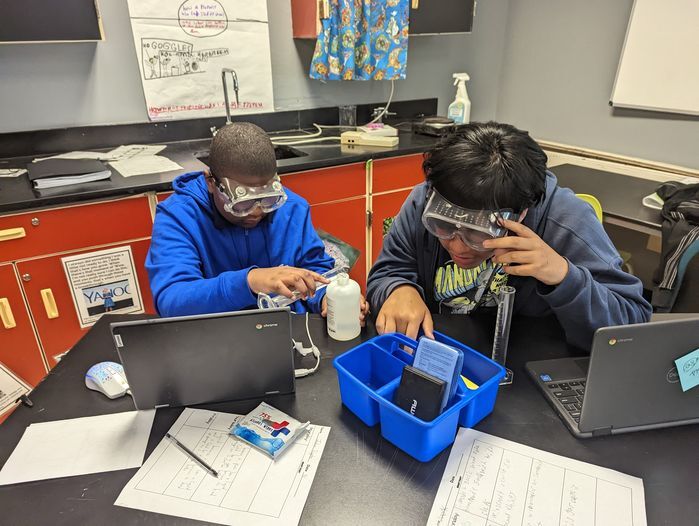science classes | Baltimore City Public School System(https://s3.amazonaws.com/jnswire/jns-media/3c/cd/12626869/21science.jpg)
science classes | Baltimore City Public School System(https://s3.amazonaws.com/jnswire/jns-media/3c/cd/12626869/21science.jpg)
Students experiment with crickets, roller coasters, and circuits
Science class at Francis Scott Key Elementary/Middle School begins with a question: Why do some things stop while others keep going?
All around the room are objects of every shape and size - mouse traps, slinkies, stress balls and hair barrettes. Focused eighth graders consider the question, write down their initial ideas and get to work: experimenting with the objects to gauge how they move and what kind of energy they might have. As they observe characteristics, they refine their ideas and consider other possibilities with their classmates.
“I challenge my students to find answers through experimentation,” explained Kim Chrystal, 7th-grade science
teacher at Francis Scott Key Elementary/Middle. “It reiterates that they are in charge of their learning, and we’re seeing a lot of aha moments as a result. It’s a fun, fulfilling way to learn.”
The hands-on approach is part of City Schools’ phenomena-based science curriculum. Instead of beginning lessons with information from a textbook, students start by making observations and asking questions, followed by working their way to finding answers through experimentation. In Ms. Chrystal’s class, the recent unit explored elastic energy, kinetic energy, and inertia - all through hands-on experiences.
Original source can be found here.


 Alerts Sign-up
Alerts Sign-up